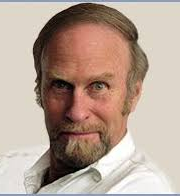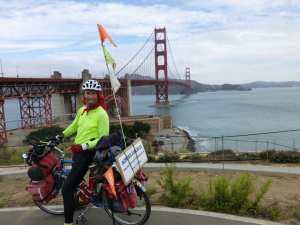Christmas Magic: Moment Frozen in Time Where the Bolt Goes Into the Bottom of the World
 By Frosty Wooldridge
By Frosty Wooldridge
This year, 2020, proved a rough one for every one of us. Over 300,000 Americans lost their lives to a “killing machine” virus. Their loved ones grieved such heavy losses. We’ve been house-bound like few times in history. On a somber note, historians will record humanity’s folly in the 21st century. Our onslaught with the Natural World, our wars and our foolishness as a cognitive species—will not be allowed much longer.
As a country, we faced horrific upheaval racially, sociologically and ethnically. We’ve sown the seeds of our own demise since 1965. We’ve carried on two empty and meaningless wars since 2001. Those wars cost us thousands of young men and women in combat, but we suffered an astounding 114,000 suicides of active and retired military from the Afghanistan and Iraq Wars. (Source: www.stopsoldiersuicides.org) And the thousands of wounded who survived walk around with plastic legs and arms! Then, what about the mentally wrecked with PTSD? Was it worth it? What was the point? Why are our three presidents and elected Congressional leaders so callous and oblivious to those kids’ suicides? What was the point of wasting $6 trillion?
 At some point, we must ask ourselves as a society if we want to continue such carnage of other countries and their lives? We’ve wrecked everything in the gunsights of our weapons all over Africa and the Middle East. What have we solved? Answer: absolutely nothing!
At some point, we must ask ourselves as a society if we want to continue such carnage of other countries and their lives? We’ve wrecked everything in the gunsights of our weapons all over Africa and the Middle East. What have we solved? Answer: absolutely nothing!
But this is Christmas, and I would like to share with you, if you haven’t already read this story from the South Pole, a tale of hope, of kindness and of beauty. My wife Sandi and I wish you Merry Christmas, with love and warm wishes, Sandi and Frosty Wooldridge.
Christmas Magic: A Moment Frozen in Time Where the Bolt Goes into the Bottom of the World….
In the morning, a whiteout howled across McMurdo Station, Antarctica with 100 mile per hour winds and minus 80-degree temperatures. I had been confined to my barracks for two days as a ‘Condition One’ storm worked its way over the icepack before me.
By late evening, the weather turned placid but a biting minus 60-degree temperature kept most people inside. I, however, bundled into my cold weather gear—insulated boots, heavy mittens, five Thermax layers, fleece, three hats, face protection, along with ski goggles—and headed out the door to ride my bicycle over the ice runway.
Yes, there were bicycles at the scientific station for me to ride. There was a report of some emperor penguins on the ice. I HAD to see them no matter what the cold. I jumped on the bike looking like an over-stuffed bear with all my cold weather gear on. My breath vaporized as I rode toward the ice-covered ocean. My lungs burned with each inhalation of polar cold. About a mile around the cove, the setting sun glinted off the roof of Robert Falcon Scott’s Discovery Hut. He had died 80 years ago on his last attempt to reach the South Pole. The Hut had stood on the point of McMurdo Sound since 1902. It gave mute testimony to the courage those men displayed in their polar adventures. This was a cold, miserable place.
I rode along a path that led toward the ice pack in the sound. It’s hard to describe pack-ice, but it’s jumbled-broken ice chards being heaved and smashed into multiple shapes-triangles, domes, squares, tubulars, and wedges—like an Erector Set gone crazy. However, near the shore, it was reasonably smooth with a thin veneer of snow from the blizzard.
Above me, a gold/purple sky glowed brazenly in its final glory into the crevasses of the Royal Society Range across the sound. For once, a rare quiet softened the bitter edge of the crystal white desert before me. One of the glaciers, more than ten miles across at its terminus radiated liquid gold from the setting sun. Stepping through some shallow snow drifts, I sank knee deep, until I pulled through and gained the edge of the ice. Even with polar weather gear protecting my body, the numbing cold crept through the air, as if it were trying to find a way into my being.
The bike frame creaked at the cold and the tires made a popping sound on the snow I pedaled over. The big boots I was wearing made it hard to keep on the pedals. But I persevered and kept moving forward. Across the ice, I looked through the sunlight and saw four black figures approaching. I shaded my eves with my gloved hand. They drew closer, their bodies backlit by the sun on the horizon. It was a family of Emperor penguins. I dismounted from my bike. From our survival classes, I learned to sit down so as not to frighten them. By appearing smaller than them, they might find me interesting.
Slowly, I lowered myself into the snow, cross-legged, like an Indian chief. Minute by minute, they waddled closer–straight toward me. Three big birds, about 80 pounds each kept moving dead-on in my direction. The smallest followed behind them.
Another minute passed and they were within 30 feet of me. The lead Emperor carried himself like a king. His silky black head-color swept down the back of his body and through his tail. A bright crayon yellow/orange streaked along his beak like a Nike logo. Under his cheek, soft aspirin-white feathers poured downward, glistening in lanolin. His wings were black on the outside and mixed with black/white on the front. He stood at least 40 inches tall and his enormous three-toed feet were a gray reptilian roughness with blunted talons sticking out. He rolled his head, looking at me in a cockeyed fashion, as if I was the strangest creature he’d ever seen.
I don’t know what made me do it, but I slipped my right hand out of the glove and moved it toward him—slowly. The rest of the penguins closed in. The big guy stuck his beak across the palm of my hand and twisted his head, as if to scratch himself against my skin. I felt glossy feathers against my hand. He uttered a muffled coo. The rest of the penguins cooed. Their mucus membranes slid like liquid soap over their eves every few seconds. I stared back, wanting to say something to them, but realized I could not speak their language. However, at that moment, we shared a consciousness of living.
My frozen breath vapors hung in the air briefly before descending as crystals toward the ground. I battled to keep from bursting with excitement. Within seconds, one of the other penguins pecked my new friend on the rump. He drew back. With that he turned and waddled away. Following the elders, the little one gave one last look at me, as if be too wanted to scratch my hand, but was afraid, and turned with his friends. As they retreated, their wings were out, away from their bodies like children trying to catch the wind in their arms. The baby Emperor was last to go.
My hand turned numb, so I stuck it back into the glove. As I sat there, I remembered once when a hummingbird landed on my pinky finger—and I remembered the sheer delicacy Nature shared with me that warm spring day in the mountains. Here, in this frozen wasteland beyond the borders of my imagination where man does not belong, Nature touched me again today with its pulsing heart and living warmth. I only hope my species learns as much respect for our fellow travelers as they show toward us.
I stood up, tightened my hood and looked for the penguins. They were gone. Only the pack ice rumbled toward the horizon. I turned to my bike. It’s hard to believe that two rubber tires laced together with spokes and rims—and attached to a metal frame could carry me from the Amazon Jungle, to Death Valley, across the Outback, down the Atacama Desert, over the Andes, across the Rocky Mountains, and on to where the bolt goes into the bottom of the globe. That simple machine laying in the frozen snow had taken me to far flung places on this planet and it had allowed me magical moments beyond description. That moment with the penguins probably was the best it had ever done by me. I remounted it and turned toward the barracks.
The ride back didn’t seem so cold.
Frosty Wooldridge, six continent world bicycle traveler, Antarctica, 1997-98.
HowToLiveALifeOfAdventure.com
© 2020 Frosty Wooldridge – All Rights Reserved
E-Mail Frosty: frostyw@juno.com